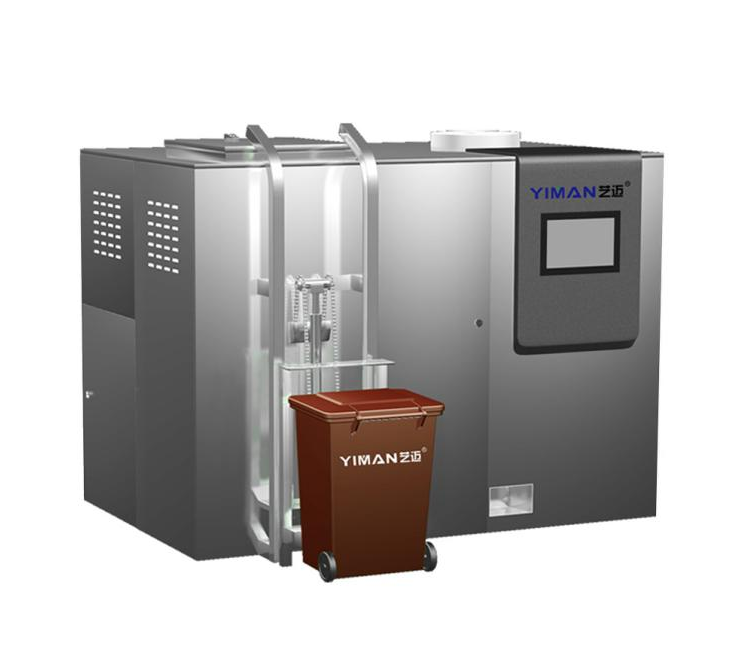Waste Food Treatment System: Redefining Resource Recycling Through Innovation
Amidst the stark reality of 1.3 billion tons of food wasted globally each year, conventional landfill methods exacerbate issues such as land occupation and methane emissions. The new generation of Yimai waste food treatment systems, through revolutionary integrated design, achieve efficient resource conversion within compact structures, profoundly transforming the operational paradigm of the waste management industry. The modular design seamlessly adapts to urban space constraints, while intelligent control systems reduce labor costs by 80%, emerging as a pioneering force in promoting environmental upgrades.
Taking the renovation of a university canteen in Shanghai’s Songjiang University Town as an example, the canteen generates 2.8 tons of food waste daily. Since the waste food treatment system‘s implementation in 2024, it occupies just 3 square meters of kitchen space yet achieves an 85% waste reduction rate, slashing daily waste transportation from 5 trucks to 1. Remarkably, the organic fertilizer produced through fermentation directly supplies the campus farm, saving $12,800 annually in chemical fertilizer procurement costs. Additionally, the installed deodorization equipment has elevated the kitchen’s environmental compliance rate to 98%. This project not only earned the accolade of a Shanghai municipal solid waste classification demonstration site but also catalyzed equipment upgrades across 5 neighboring universities, establishing a regional model for green transformation.
The waste food treatment system is made of high-quality stainless-steel materials, the structure is compact by logical appearance. with advantages of advanced technology, automatic intelligence, energy saving and environmental protection. Processed 2-3 times a day, and the garbage can be treated immediately without deterioration. Under normal circumstances, only takes 4-7 hours to deal with waste food at one time, and can be reduced and recycled locally to eliminate corruption, odor and secondary pollution. Treatment capacity is 50~3000Kg/per time, power consumption is 0.18~0.22kwh/kg, oil/water separate percentage is greater than or equal to 90%. The decrement rate is 85~90%.
The Yimai waste food treatment system is not merely a tool for environmental governance but a powerful engine for resource revolution. Through continuous technological innovation and scenario penetration, it is reshaping urban metabolic mechanisms, providing strategic solutions for municipal administrators and commercial entities pursuing ESG goals. Let us join hands to usher in a new era of industrial upgrading where food waste is transformed into treasures, contributing to the creation of a green and sustainable future!
Keywords:
Yimai waste food treatment systems
The Yimai waste food treatment system


